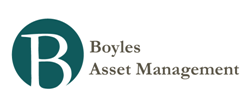Mastering the Machine - By John Cassidy
How Ray Dalio built the world’s richest and strangest hedge fund.
Ray Dalio, the sixty-one-year-old founder of Bridgewater Associates, the world’s biggest hedge fund, is tall and somewhat gaunt, with an expressive, lined face, gray-blue eyes, and longish gray hair that he parts on the left side. When I met him earlier this year at his office, on the outskirts of Westport, Connecticut, he was wearing an open-necked blue shirt, gray corduroy pants, and black leather boots. He looked a bit like an aging member of a British progressive-rock group. After a few pleasantries, he grabbed a thick briefing book and shepherded me into a large conference room, where his firm was holding what he described as its weekly “What’s going on in the world?” meeting.
Of the fifty or so people present, most were clean-cut men in their twenties or thirties. Dalio sat down near the front of the room. A colleague began describing how the European Central Bank had just bought some Greek bonds from investors at a discount to their face value—a move that the speaker described as a possible precursor to an over-all restructuring of Greece’s vast debts. Dalio interrupted him. He said, “Here’s where you are being imprecise,” and then explained at length what a proper debt restructuring would entail, dismissing the E.C.B.’s move as an exercise in “kicking it down the road.”
Dalio is a “macro” investor, which means that he bets mainly on economic trends, such as changes in exchange rates, inflation, and G.D.P. growth. In search of profitable opportunities, Bridgewater buys and sells more than a hundred different financial instruments around the world—from Japanese bonds to copper futures traded in London to Brazilian currency contracts—which explains why it keeps a close eye on Greece. In 2007, Dalio predicted that the housing-and-lending boom would end badly. Later that year, he warned the Bush Administration that many of the world’s largest banks were on the verge of insolvency. In 2008, a disastrous year for many of Bridgewater’s rivals, the firm’s flagship Pure Alpha fund rose in value by nine and a half per cent after accounting for fees. Last year, the Pure Alpha fund rose forty-five per cent, the highest return of any big hedge fund. This year, it is again doing very well.
- The Soul Of A Hedge Fund 'machine'
Link to: The Soul of a Hedge Fund 'Machine' The Bridgewater founder talks about how his firm measures employees and economies to steer its $160 billion in investments. How do you build the world's largest hedge fund? Bridgewater...
- The Billionaire Ray-man Who Plays By His Own Rules
Never say anything about a person you wouldn’t say to him directly. If you do, you’re a slimy weasel.” So runs principle 11 of Ray Dalio’s guidelines to life: part self-help guide, part radical philosophy, part club-house rules. And the blueprint...
- Dalio Takes Hedge Crown From Soros
Ray Dalio has overtaken George Soros as the world’s most successful hedge fund manager after his Bridgewater Pure Alpha fund made $13.8bn for investors last year. The profits made by the Connecticut-based Pure Alpha – already the world’s biggest...
- In Punishing Year For Hedge Funds, Biggest One Thrived
Found via ValueWalk. The world’s biggest hedge fund is also one of the best performers. Bridgewater Associates, which manages nearly $120 billion, posted returns of 23 percent in 2011 — a year when the average hedge fund portfolio lost 5 percent....
- Dalio Returns 25% This Year On Diversified Bets Even As Markets Convulse
Found via The Big Picture. Bridgewater Associates LP founder Ray Dalio can rattle off the investing fads he’s witnessed since he began trading as a 12-year-old golf caddie: the Nifty-50 stock craze of the 1970s, the 1980 gold bubble and even the 60-...

